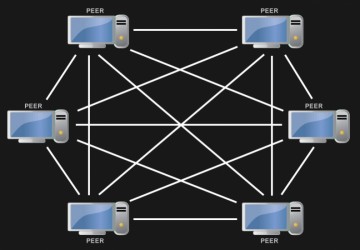
Lies kill relationships
In any relationship, honesty is the foundation that holds partners together. This is particularly true in LGBTQ relationships, where trust and understanding are paramount due to the unique challenges that these couples often face. When lies and deceit enter the picture, the damage can be profound and far-reaching. Here’s why lies can break open relationships in the LGBTQ community and how honesty can pave the way for healthier, more fulfilling connections.
1. Trust is Crucial in Overcoming External Challenges
LGBTQ couples frequently navigate societal prejudices, discrimination, and sometimes even rejection from family and friends. These external pressures can create a sense of isolation and a stronger reliance on each other for support and understanding. When lies disrupt this trust, it can feel like a betrayal, not just from a partner, but from the one person expected to provide unwavering support.
2. Vulnerability and Authenticity are Essential
Coming out and living openly as LGBTQ often involves a deep level of personal vulnerability. Being honest about one’s identity, feelings, and experiences requires courage and authenticity. When a partner lies, it undermines this shared journey of vulnerability. The betrayed partner may feel their openness has been taken advantage of, leading to emotional pain and a sense of betrayal.
3. Communication Breakdowns Lead to Misunderstandings
Effective communication is a cornerstone of any relationship. Lies create a breakdown in communication, leading to misunderstandings and conflicts. In LGBTQ relationships, where partners may already be dealing with complex issues such as internalized homophobia or societal pressures, clear and honest communication is even more critical. Lies can complicate these discussions and hinder the resolution of underlying issues.
4. Emotional Intimacy is Compromised
Emotional intimacy involves sharing one’s true self with a partner, including fears, hopes, and dreams. Lies create a barrier to this intimacy, making it difficult for partners to connect on a deeper emotional level. For LGBTQ individuals, who may have experienced periods of hiding their true selves, maintaining emotional intimacy is vital for a healthy relationship. Deceit can erode this intimacy, leading to feelings of disconnection and loneliness.
5. The Impact of Internalized Shame and Guilt
LGBTQ individuals often grapple with internalized shame and guilt due to societal stigmas and personal struggles with their identity. When lies enter a relationship, they can amplify these feelings. A partner who lies might do so out of fear or shame, which can perpetuate a cycle of dishonesty. The other partner, upon discovering the lie, may also feel shame or guilt for trusting someone who deceived them. This cycle can be damaging to the mental health of both individuals and the stability of the relationship.
6. Rebuilding Trust is More Challenging
Rebuilding trust after a lie is always challenging, but it can be particularly difficult in LGBTQ relationships due to the added layers of external stressors and the need for mutual support. The process of healing and rebuilding trust requires time, effort, and a commitment to honesty from both partners. Without this foundation, the relationship may struggle to recover fully.
Conclusion
Lies have the power to break open and potentially destroy relationships, especially in the LGBTQ community where trust, vulnerability, and emotional intimacy are essential for navigating the unique challenges faced by these couples. To foster strong, healthy relationships, honesty must be a priority. By committing to open and honest communication, LGBTQ partners can build a foundation of trust that supports them through the trials and triumphs of their shared journey. Embracing authenticity and transparency not only strengthens individual connections but also fortifies the community as a whole, promoting a culture of trust and support.
-
 08/08/2024 194
08/08/2024 194 -
 08/01/2024 463
08/01/2024 463 -
 08/01/2024 349
08/01/2024 349 -
 08/01/2024 414
08/01/2024 414 -
 07/03/2024 444
07/03/2024 444
-
 06/10/2017 5707
06/10/2017 5707 -
 06/19/2017 4257
06/19/2017 4257 -
 10/07/2017 4219
10/07/2017 4219 -
 06/10/2017 4132
06/10/2017 4132 -
 06/28/2017 3724
06/28/2017 3724
FEATURED NEWS

GENERAL

GENERAL

GENERAL

GENERAL





LEAVE A COMMENT